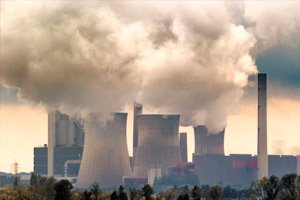
All iLive content is medically reviewed or fact checked to ensure as much factual accuracy as possible.
We have strict sourcing guidelines and only link to reputable media sites, academic research institutions and, whenever possible, medically peer reviewed studies. Note that the numbers in parentheses ([1], [2], etc.) are clickable links to these studies.
If you feel that any of our content is inaccurate, out-of-date, or otherwise questionable, please select it and press Ctrl + Enter.
How Air Pollution Causes Immune Disruptions and Lung Damage
Last reviewed: 27.07.2025
 ">
">Air pollution is a global health problem: more than 90% of the world’s population breathes air that exceeds World Health Organization safety standards. Particulate matter (PM) and fine particulate matter (PP) are particularly dangerous because they can penetrate deep into the lungs and bloodstream. Although the link between air pollution and respiratory disease is well established, how exactly these pollutants disrupt immune responses in the lungs has remained unclear.
In a recent study, a team led by Professor Changwan Hong from the Pusan National University School of Medicine in South Korea examined how long-term exposure to particulate matter causes immune imbalances in the lungs. “Our study shows that chronic exposure to particulate matter (PM10 and PM2.5) triggers harmful allergy-like (TH2) immune responses in the lungs through activation of oxidative stress and the NRF2 pathway,” explains Professor Hong. The paper was published in the journal Redox Biology.
Using a mouse model, the researchers exposed mice to PM10 and PM2.5 daily for 16 weeks. They then analyzed lung tissue, plasma, and immune cell profiles to assess how particulate matter affected lung health and immune system function. The mice exposed to PM showed significant signs of lung inflammation, including thickening of the alveolar walls, immune cell infiltration, and tissue scarring. These effects were more pronounced in the group exposed to PM2.5, which is known to penetrate deeper into the lungs.
The researchers also noted a marked shift in immune response. The activity of TH1-type immune responses associated with defense functions was suppressed, while TH2-related signals were enhanced. This included increased levels of cytokines such as IL-4, IL-5, and IL-13, as well as higher levels of IgE and IgG1 antibodies, which are associated with asthma and allergic inflammation. These findings suggest that long-term PM exposure shifts the immune balance toward an allergic-type response.
This shift in immune response was closely linked to the activation of the NRF2 pathway, a key regulator of oxidative stress. NRF2 normally protects the body from environmental damage, but when chronically activated, it appears to worsen inflammation. “This mechanistic link explains why air pollution can worsen asthma and other allergic diseases, identifying NRF2 as a key driver of this shift,” says Professor Hong.
The study provides insight into how chronic air pollution affects respiratory health at the molecular level. By linking NRF2 activation to immune rewiring, the findings point to new potential therapeutic targets, such as antioxidants or drugs that regulate NRF2 activity.
"Our results suggest that reducing oxidative stress or modulating NRF2 activity may be a new strategy for the treatment or prevention of pollution-induced allergic-type inflammation, such as asthma," says Professor Hong.
Overall, the study provides a clearer understanding of how pollution affects the immune system and highlights the need for stricter air quality standards to protect vulnerable populations.
